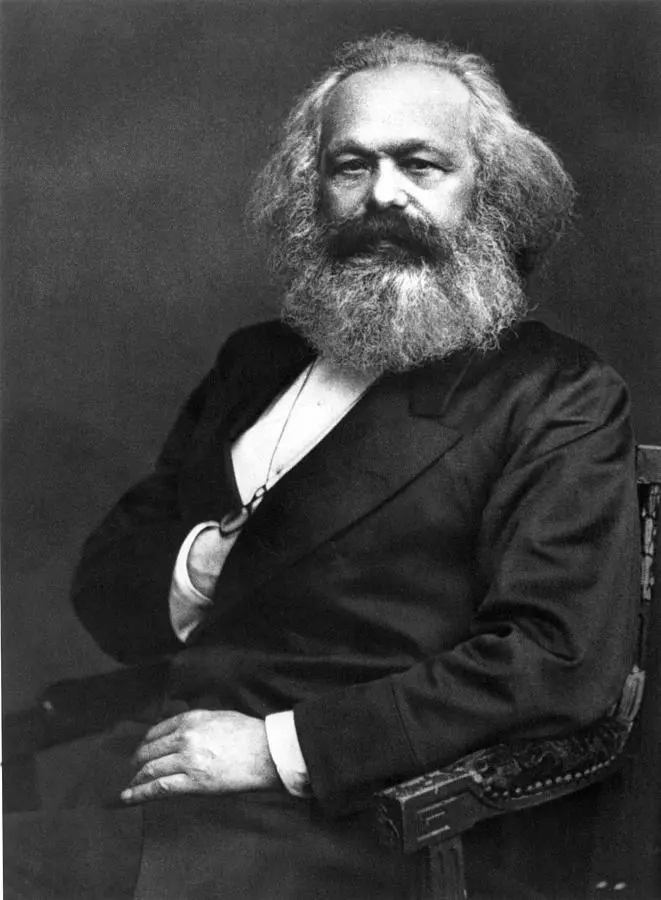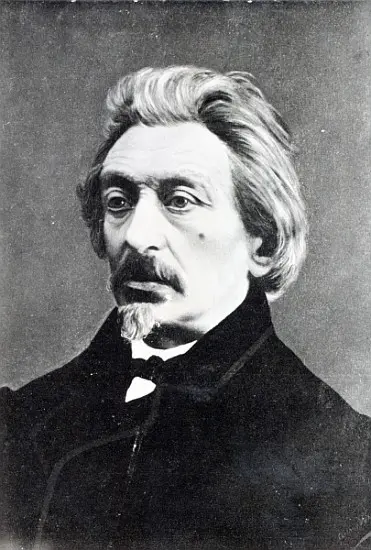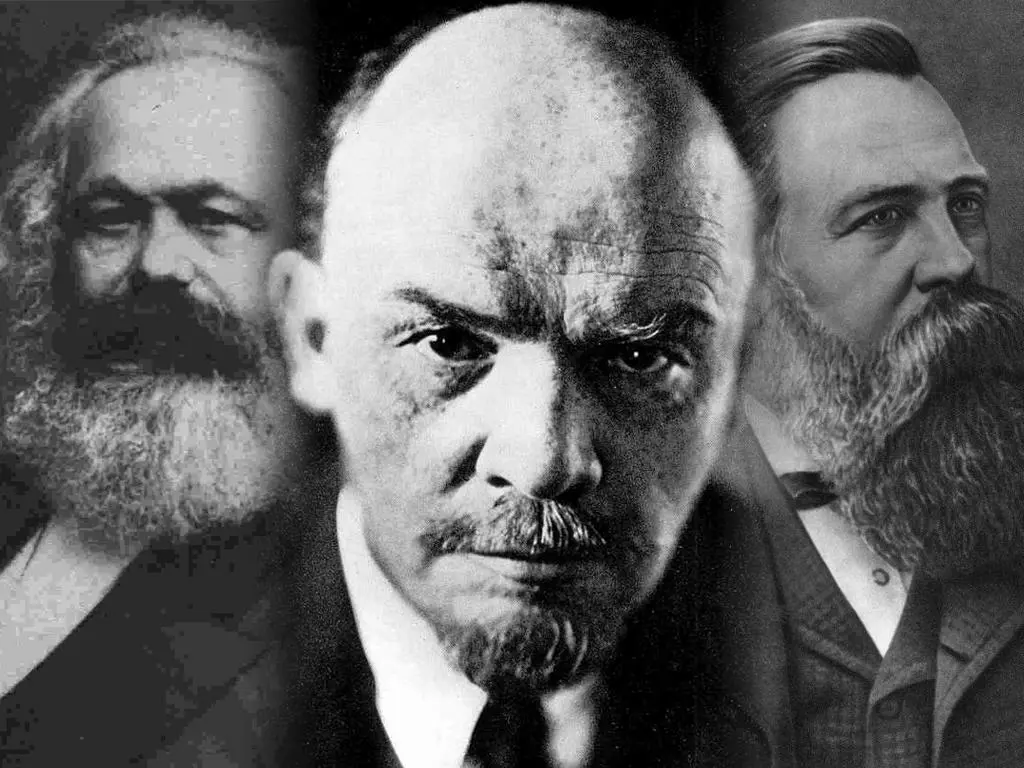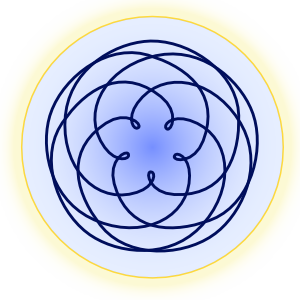The Origins of Communism
Communism has proved to be the most demoniac doctrine created by the minds of men. Little is known of the hidden facts behind the slogans of communism, which has demoralized our mankind especially in the 20th century, sowed destruction in many societies and cost the lives of more than 100 million people world-wide.
Published on May 27, 2021
It is considered that Karl Marx (together with Friedrich Engels) is the creator of the concept of international communism, as he was given the task to write the manifesto for The League of the Just (later renamed to The Communist League) in 1848. Much less is known of those behind the frontmen Marx and Engels, but who had significant roles in designing the destructive communist doctrine. Also, the origins of the communist idiology lie in much other places than in the minds of those two.
Moses Mordecai Levi Marx

Moses Mordecai Levi Marx was born on May 5, 1818 in Trier, Germany. He was a son of lawyer Hirschel ha-Levi Marx, his grandfather was a chief rabbi in Cologne. Moses Mordecai was baptized on 1824, and given the name Karl Heinrich Marx. He attended a former Jesuit school and Berlin University. Marx studied economics in Paris in 1843, then lived some years in Brussels and after the failed revolution of 1848 in Germany, he escaped to London, where he resided for the rest of his life.
From his early years, he expressed a lot of hatred against the world and was attracted to dark forces and destruction. He put those feelings also on paper, producing ca 40 poems. One of his favorite themes was a demonic rebellion against God. For example in a poem “The Fiddler” (“Des Spielmann”) he declared e.g.:
Look now, my blood-dark sword shall stab
Unerringly within thy soul.
God neither knows nor honors art.
The hellish vapors rise and fill the brain,
Till I go mad and my heart is utterly changed.
See this sword - the Prince of Darkness sold it to me.
For he beats the time and gives the signs.
Ever more boldly I play the dance of death.
In “Oulanem” Marx writes: 1
If there is something which devours,
I'll leap within it, though I bring the world in ruins -
The world which bulks between me and the Abyss
I will smash to pieces my enduring curses.
In his letter, also Marx’s father expressed concerns about his son’s character and his relation with “demons”.2
The following description about Marx tells a lot:
Who is chasing wild endeavor? A black man from Trier, a remarkable monster. He does not walk or run, he jumps on his heels and rages full of anger as if he would like to catch the wide tent of the sky and throw it to the earth. He stretches his arms far away in the air; the wicked fist is clenched, he rages without ceasing, as if 10,000 devils had caught him by the hair.3
The character and behaviour of that revolutionary communist describe all too well his real motives. According to his assistant Karl Heinzen, Marx was an unreliable egoist and a lying intriguer who only wished to exploit others. The editorial staff of Neue Rheinische Zeitung (where Marx was an editor) was, according to Engels, organized so that Marx became its dictator. He had a habit of saying: I will annihilate you.4 Marx has been characterized by habitual anger, dictatorial habits, bitterness and egoism.5
During his life, Marx exploited many people near him. To work was what Marx wanted least of all. Neither did he show consideration for the work of others. Many craftsmen he hired had to wait a long time for their pay. His housekeeper, Helen Demuth, worked like a slave in his household for 40 years with very little reward.6
Marx fought all those he could not subdue. He could not take criticism and became infuriated if anyone tried to criticise him. Also, he spent a lot of time collecting information about his political rivals and opponents. The notes with such information he delivered to the police.7 He was a paid informer of the Austrian police, spying on his fellow revolutionaries and receiving cash for his information.8
Moritz Moses Hess

In 1841, when Marx was 23, he met Moritz Moses Hess (1812-1875), who from that day on had a profound influence on Marx’s views.9
Hess was a founder of the radical newpaper Rheinische Zeitung and he hired Marx to be its editor. Moses Hess has been considered a communist rabbi and the father of modern socialism.10 By virtue of his unremitting activity in behalf of revolutionary ideals, he won the title of the “father of German communism”.11 Also, Hess advocated for a doctrine of Jewish nationalism that would later be called Zionism.12
In 1844 Hess facilitated the meeting of Marx with Friedrich Engels, which started a life-long collaboration. Hess introduced Engels, the future famous communist, to communism in the early 1840s. Hess wrote after meeting Engels in Colgne: He parted from me as an overzealous Communist. This is how I produce ravages…13
Many of the statements made by the marxists, even in their Manifesto, closely resemble also those of Moses Hess. Hess advocated for elimination of matrimonial bondage [Ehezwang], that the bonds of marriage will no longer be enslaving chains. For him, … the state will replace the family and conduct the education of the young.14 Marx and Engels contributed mightly to the anti-family trend among socialists, writing usually about the destruction, dissolution and abolition of the family.15 We can observe how these communist ideas surface again among present-day leftist forces, feminists, gender theories and others.
It is suggested that Moses Hess might have been the one who injected the thought of abolition of private property into the minds of Marx and Engels.16 This is crucial as abolition of property was established to be a cornerstone of communism in the Communist Manifesto – … the theory of the communists may be summed up in the single sentence – the abolition of private property.
In 1847 Hess published an essay Die Folgen des Revolution des Proletariat, which contained much, which in 1848 was formulated into The Communist Manifesto. Hess wrote:
A revolution of the proletariat presupposes before all things the existence of a proletariat, presupposes a struggle, not merely about abstract principles but about concrete and tangible interests, presupposes that the very existence of the great majority of the workers is threatened, that these workers know who the enemy is they have to fight, and that they have the means in their own hands to achieve victory…
Also he wrote: I will use the sword against all citizens who resist the endeavors of the proletariat.17
Origins in freemasonry
 It was also Moses Hess who introduced both Marx and Engels into freemasonry. In 1845, Marx became the member of the Le Socialiste lodge in Brussels.18 Marx and Engels were freemasons of the 31st degree.19
It was also Moses Hess who introduced both Marx and Engels into freemasonry. In 1845, Marx became the member of the Le Socialiste lodge in Brussels.18 Marx and Engels were freemasons of the 31st degree.19
It is a notable finding that the masonic lodge Le Socialiste, which initiated Marx into freemasonry, had two years before under the leadership of Jean-Marie Ragon formulated a socialist plan for overthrowing ruling regimes. The lodge submitted a draft for the revolutionary plan of action on July 5, 1843, which had similarity to the Communist Manifesto published five years later, in 1848. Bulletin du Grand Orient (June 1843) stated that this programme was accepted by the Belgium’s largest masonic authority, Le Supreme Conseil de Belgique and it was “corresponding to the masonic doctrine concerning the social question and that the world which is united in Grand Orient should with all conceivable means aim to realise it.”
In her profound piece World Revolution, historian Nesta Webster has explained that the origins of Marxist communism lie in those sinister forces, which have for a long time worked for overthrowing ruling regimes and demolishing the core values of the European societies. She argues:
In the Communist Manifesto … are set forth the doctrines laid down in the code of Weishaupt20 – the abolition of inheritance, of marriage and the family, of patriotism, of all religion, the institution of the community of women, and the communal education of children by the State. This, divested of its trappings, is the real plan of Marxian Socialism…21
Winston Churchill praised the ability of Mrs Webster for important revelations and claimed that there is a world-wide conspiracy for the overthrow of civilization and for the reconstitution of society on the basis of arrested development, of envious malevolence, and impossible equality – from the days of Spartacus-Weishaupt to those of Karl Marx, and down to Trotsky (Russia), Bela Kun (Hungary), Rosa Luxembourg (Germany), and Emma Goldman (United States).22
The similarities between the aims of Illuminati23 and the Communist Manifesto can be compared in the following formula:
| Programme of the Illuminati (1776) by Adam Weishaupt | The Communist Manifesto (1848) by Karl Marx and Friedrich Engels |
|---|---|
| Abolition of Monarchy and all ordered Government, in order to finally set up a world government | The ends of communism can be attained only by the forcible overthrow of all existing social conditions and the bourgeois supremacy. Conquest of political power by the “proletariat” |
| Abolition of private property | Abolition of private property in land and application of all rents of land to public purpose |
| Introducing a progressive income tax | Introducing a heavy progressive income tax |
| Abolition of inheritance | Abolition of all rights of inheritance |
| Abolition of patriotism | Working men have no country, nations will be merged under the rule of the “proletariat” |
| Abolition of the family (i.e. of marriage and all morality, and the institution of the communal education of children) | Abolition of the family (institution of educating children at the expense of the state) |
| Abolition of all religion | All religions will be superseded - communism is that stage of historical development which makes all existing religions superfluous |
At 1847 Marx and Engels became members of The League of the Just (Bund des Gerechten). This secret organisation was founded in 1836 by revolutionary socialists and several of their leading members were involved in a failed coup d’etat in Paris on May 12, 1839. In the end of 1847, Marx and Engels participated in reorganizing The League of the Just into The Communist League. This new group tasked Marx and Engels with writing a programme for itself. The task resulted in The Communist Manifesto.
International Workingmen’s Association (or The First International) was founded in 1864 by mainly the English and French with an aim at uniting various socialist, communist and anarchist groups and trade unions based on class struggle. Marx was not involved in the creation of the International, but started to increase his influence after the founding. He came like the cuckoo and laid his egg in a nest which was not his own, as his plan from the first day was to make the working-men’s organization the instrument of his personal views.24 His aim was to establish the spirit and main principles of the Communist Manifesto as the core of the association, because in its origin the International was far from being revolutionary, seeking disturbances in the streets and liking insurrection for insurrection’s sake. Marxists aim was mostly finalized at the Fourth Congress in Basel in 1869, when the policy of the association veered still further towards communism by the abolition of private property in land and of inheritance.
The International was quickly embraced by freemasons and it found support in freemasonry, especially in the lodges of the Grand Orient. According to journalist Louis Énault, in March 1865 many secret associations of Europe and North America were merged in the First International, the secret societies of Russia and Poland, the remains of the Carbonari, joined up with the new society. This fusion was made.25
Nesta Webster concludes:
All talk of conditions of labour, all discussion of the practical problems of industry had been abandoned and the Internationale became simply an engine of warfare against civilization. By its absorption of the secret societies and of the doctrines of Illuminism all the machinery of revolution passed into its keeping. Every move in the game devised by Weishaupt, every method for engineering disturbances and for spreading inflammatory propaganda, became part of its programme.26
Marx, the plagiarist
Socialism, marxism, communism, were presented by its formulators as scientific theories that “proved” the inevitability of the destruction of the capitalistic organization of society. Those theories were allegedly based on “social evolution laws discovered by Marx”. The advent of the state without private property and without nuclear family27 was unavoidable according to them. But Marxism was dogma masquerading as science. Pretension to “scientific method” was a mask designed to increase appeal, according to the times fashion. Marxism violated one of the main principles of this method, namely readiness to adapt theory to new evidence.28
Nesta Webster researched Marx’s ideas and concluded:
In neither work The Communist Manifesto nor “Das Kapital” had Marx originated anything. … When have traced these ideas to their original sources, what then is left of Marx’s system? Absolutely nothing but the form in which it was conveyed. … Marx collected all the materials for his book on Capital in the reading-room of the British Museum. It was there that he found his whole system ready to hand. … Marx then was an impostor from the beginning. Posing as the prophet of a new gospel, he was in reality nothing but a plagiarist and a plagiarist without the common honesty to pay tribute to the sources whence he drew his material. For after pillaging freely from all the earlier socialists, Marx dismisses them with a sneer. …29
Marx stole and piled together ideas from Marat, Hebert, Vidal, Pecqueur, Babeuf, Blanc, Cabet, Clootz, Owen, also John Locke and Adam Smith on the importance of labour. And most notably, his economic theory was largely plagiarized from Pierre-Joseph Proudhon (1809-1865), whom, of course, he treated with bitterest animosity.
Marx’s plagiarism was even admitted by his admirer the Syndicalist Georges Sorel, who wrote that … pretended inventions had been put down to the account of the master which originated with his predecessors or were even common places at the time when The Communist Manifesto was drawn up. He brings the example of accumulation of capital in the hands of a few individuals, which was one of the discoveries Marx was the proudest of. But this thesis was known even to the man in the street and had become a dogma in the socialist circles before Marx ever wrote anything. There are a quantity of Marxian theses of the same kind, Sorel concludes.30
Mikhail Bakunin (1814-1876), the Russian anarchist and one of Marx’s comrades in the socialist movement, characterized Marx in the following:
His vanity… has no bounds, a veritable Jew’s vanity… This vanity, already very great, has been considerably increased by the adulation of his friends and disciples. Very personal, very jealous, very touchy and very vindicative, like Jehovah the God of his people, Marx will not suffer that one should recognize any other God but himself; what do I say? that one should even render justice to another socialist writer or worker in his presence…31
Marx made no secret of his attitude toward those who disagreed with him: criticism, he once wrote, is not a scalpel but a weapon. Its object is the enemy, [whom] it wishes not to refute but to destroy.32
Influence of The Communist Manifesto on the 20th century
Claims have been made by some that the Communist Manifesto and Marxist communist doctrine have not been correctly “comprehended” nor “interpreted” by the various communist tyrants in the 20th century. That is either wishful thinking or deliberate distortion of facts. The authors of the Black Book of Communism33 associate communism and criminality, saying: Communist regimes… turned mass crime into a full-blown system of government and add that this criminality lies at the level of ideology rather than state practice.34

It is clear from the writings of Marx and Engels that their proposed solution has always been violent revolution, terroristic destruction of the societies and dictatorship.
After the failure of the 1848 revolution in Germany, Marx wrote that, … there is only one way in which the murderous death agonies of the old society and the bloody birth throes of the new society can be shortened, simplified and concentrated, and that way is revolutionary terror.35
In 1849 Marx wrote: We are merciless and do not demand any clemency. When it is our turn, we will not hide our terrorism.36
In Das Kapital (1867), Marx argued that violence is a necessity in socialist actions: Violence is the midwife who helps a new society struggle out from the womb of the old.
Together with Engels he spread the idea of revolutionary terrorism as a way to end the traditional society.37 This is also evident from the Communist Manifesto, which ends with a clear statement: The Communists … openly declare that their ends can be attained only by the forcible overthrow of all existing social conditions. Let the ruling classes tremble at a communist revolution. … And surely, how can it be that only “misinterpreters” seized power and sowed destruction as marxist communists in Russia, China, Yugoslavia, Cambodia, Cuba, Mongolia, Afganisthan, North-Korea, Ethiopia etc?
Moreover, from his early years, Marx in a fanatic fashion fixed his gaze to an end-aim – destruction of the traditional human society and its elements (nation, family, private ownership) – and constructed the whole of his delusional theory around it so to support it. British historian Paul Johnson concludes that, Marx’s concept of a Doomsday … was always in Marx’s mind, and as a political economist he worked backwards from it, seeking the evidence that made it inevitable, rather than forward to it, from objectively examined data.38
Basing their violence and destruction on the works of Marx and Engels, communist dictators and tyrants have sowed unthinkable misery on humanity. Modest estimation on the number of victims was presented in the “The Black Book of Communism”39 in 1997 – approximately 95-100 million people in many countries through genocide, mass killings, executions, deportations, imprisonment, forced labor, man-made famines etc. There are researchers, who estimate the total number of victims to be much higher, e.g. as the archives of China are still closed, reaching up to 150 million and more40. And yet, the number of victims increase year by year, as still one fifth of the world’s population lives under single-party communist regimes in China, Cuba, Laos, North Korea and Vietnam.

Moreover, the highest politician of the European Union, Commission President Jean-Claude Juncker, in May 2018 went personally to open a 4.4-meter statue for Marx in Trier, Germany and claimed that Marx shouldn’t be judged for the crimes that his followers committed decades after his death.41 The statue was presented by the Communist Party of China to commemorate “200th anniversary of Marx’s birth”. Juncker also stated that Marx was a philosopher, who thought into the future and had creative aspirations. Such gruesome intervention from the highest political figure in the EU apparatus reveals the value chart of the EU and illustrates the present state-of-affairs inside the Union.
Conclusion
Karl Marx can hardly deserve the name “the father of communism”, as he was more of a frontman for the movement. Rather, the fatherly figure in the rise of communism has been Moses Hess, who guided Marx and Engels into the world of red revolution and destruction. In the Communist Manifesto, Marx and Engels just publicized the ideas, which were stated already in the previous century by a secret and influential organisation Illuminati, which was founded by Adam Weishaupt in 1776. Also, freemasonry has been notably active in spreading and supporting the communist ideas in the 19th century and beyond.
If someone prefers, Marx can be called “the father of revolutionary terror and violence”, as this was his clearly stated way of tearing down existing societies and his slogans were taken as worthy instructions by those red dictators and tyrants, whose aim was to overthrow existing regimes and reign with ruthless despotism. Either way, communism has been the most destructive doctrine created by men during many centuries and is still allowed to rule over a large portion of mankind in the 21st century.
Robert Payne The Unknown Karl Marx (1971), pp 59, 61 ↩︎
Letter from Heinrich Marx to his son Karl, written in Trier, March 2, 1837 ↩︎
Franz Mehring Karl Marx – Geschichte seines Lebens (1964), pp 99-100 ↩︎
Karl Heinzen Erlebtes (1864) ↩︎
Paul Johnson Intellectuals: From Marx and Tolstoy to Sartre and Chomsky (1990), chapter 3, 214/1069 (epub) ↩︎
Fritz Joachim Raddatz Karl Marx: Eine Politische Biographie (1975) ↩︎
Paul Johnson Intellectuals: From Marx and Tolstoy to Sartre and Chomsky (1990), chapter 3, 207.7/1069 (epub) ↩︎
Karl Marx letter published in the German newspaper Reichsruf, January 9, 1960; Richard Wurmbrand Marx: Prophet of Darkness (1986), p 28 ↩︎
Theodor Zlocist Moses Hess: der Vorkämpfer des Sozialismus und Zionismus (1921); Sydney Hook Karl Marx and Moses Hess in New International, Vol 1 Nr 5 (1934) ↩︎
Jüdische Lexicon (Berlin, 1928), pp 1577-1578 ↩︎
Sydney Hook Karl Marx and Moses Hess in New International, Vol 1 Nr 5 (1934) ↩︎
Theodor Zlocist Moses Hess: der Vorkämpfer des Sozialismus und Zionismus (1921) ↩︎
A. Melskii Evangelist Nenavisti (in Russian The Evangelist of Hate) (1933), p 48; Richard Wurmbrand “Marx and Satan” (1986), p 37 ↩︎
Moses Hess The Holy History of Mankind and Other Writings (1837), p 87 ↩︎
Richard Weikart Marx, Engels and the Abolition of the Family, History of European Ideas, pp 657-672 ↩︎
Juri Lina Under the Sign of the Scorpio (2014), p 100 ↩︎
Moses Hess Briefu/echsel (Correspondence), letter of December 9, 1863 to Lassalle (1959), p 459 ↩︎
Juri Lina Under the Sign of the Scorpio (2014), pp 108-109 ↩︎
Vladimir Istarkhov The Battle of the Russian Gods (2000), p 154 ↩︎
Adam Weishaupt (1748-1830), a freemason and the founder of the secret society Illuminati, which was established on the 1st of May, 1776 in Ingolstadt, Bavaria. One of the aims executed by the order was to infiltrate masonic lodges and enlarge its influence through them. ↩︎
Nesta Webster “World Revolution” (1921), p 169 ↩︎
Rt. Hon. Winston S. Churchill Zionism versus Bolshevism, published in Illustrated Sunday Herald, February 8, 1920, page 5 ↩︎
Einige Originalschriften des Illuminaten-Ordens, Nachtrag von weitern Originalschriften (1786) ↩︎
The principle chronicler of the International – James Guillaume Karl Marx, Pan-Germaniste (1915), p 11 ↩︎
Louis Énault Paris brûlé par la Commune (1871), p.24 ↩︎
Nesta Webster World Revolution (1921), p 196 ↩︎
Abolition [Aufhebung] of the family! Even the most radical flare up at this infamous proposal of the Communists. On what foundation is the present family, the bourgeois family, based? On capital, on private gain. In its completely developed form, this family exists only among the bourgeoisie. But this state of things finds its complement in the practical absence of the family among the proletarians, and in public prostitution. The bourgeois family will vanish as a matter of course when its complement vanishes, and both will vanish with the vanishing of capital. (From the Communist Manifesto) ↩︎
Richard Pipes Communism. A History (2001), 22.7/300 (epub) ↩︎
Nesta Webster World Revolution (1921), p 169-170 ↩︎
Georges Sorel Reflexions sur la violence (1908), pp 173-174 ↩︎
Max Nettlau Michael Bakunin, eine Biographie, p 69 (a letter from Bakunin to the Freres de l’Alliance en Espagne in 1873) ↩︎
Richard Pipes Communism. A History (2001), 22.7/300 (epub) ↩︎
Stéphane Courtois, Nicolas Werth, Andrzej Paczkowski and others ↩︎
The Black Book of Communism (1997), pp 2,4 ↩︎
Neue Rheinische Zeitung (nr 136), November 6, 1848 ↩︎
Arnold Kunzli Karl Marx: Eine Psychographie (1966) ↩︎
Marx and Engels Works, volume 5, p 494 ↩︎
Paul Johnson Intellectuals: From Marx and Tolstoy to Sartre and Chomsky (1990), chapter 3, 161.9/1069 (epub) ↩︎
English edition published by Harvard University in 1999 ↩︎
E.g. Rudolph Joseph Rummel (Reevaluating China’s Democide to 73 million in Democratic Peace Blog, Dec 1, 2012) and (Stalin Exceeded Hitler in Monstrous Evil, Mao Beat Out Stalin in “Hawaii Reporter”, Sept 17, 2009); Dimitri Panin The Notebooks of Sologdin (1976) ↩︎

